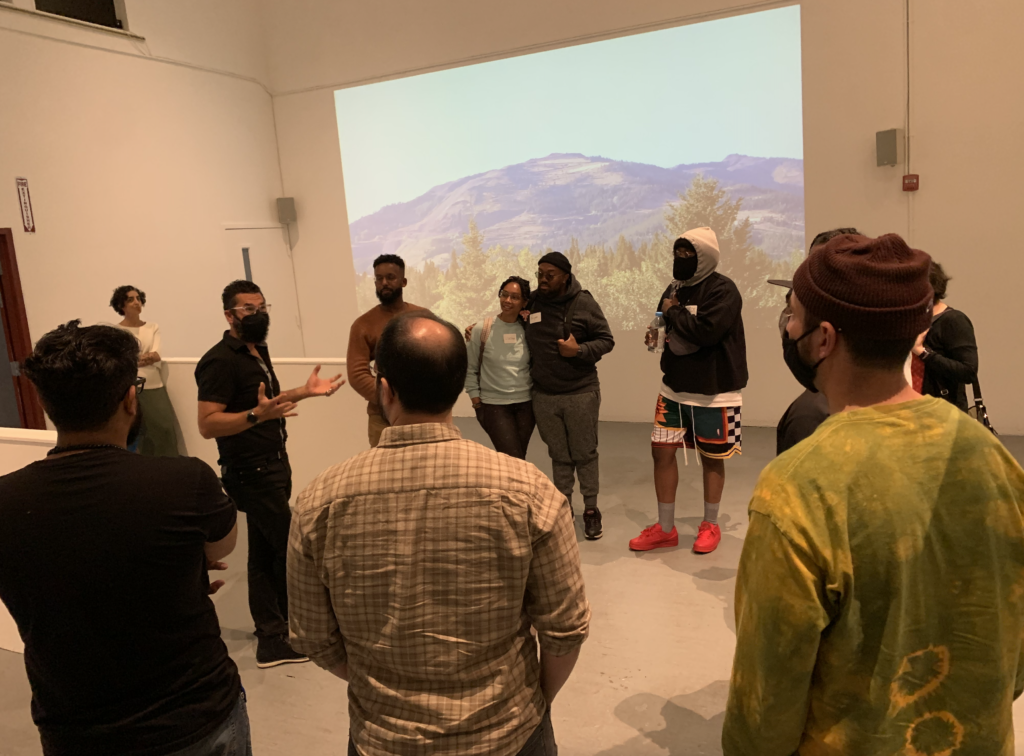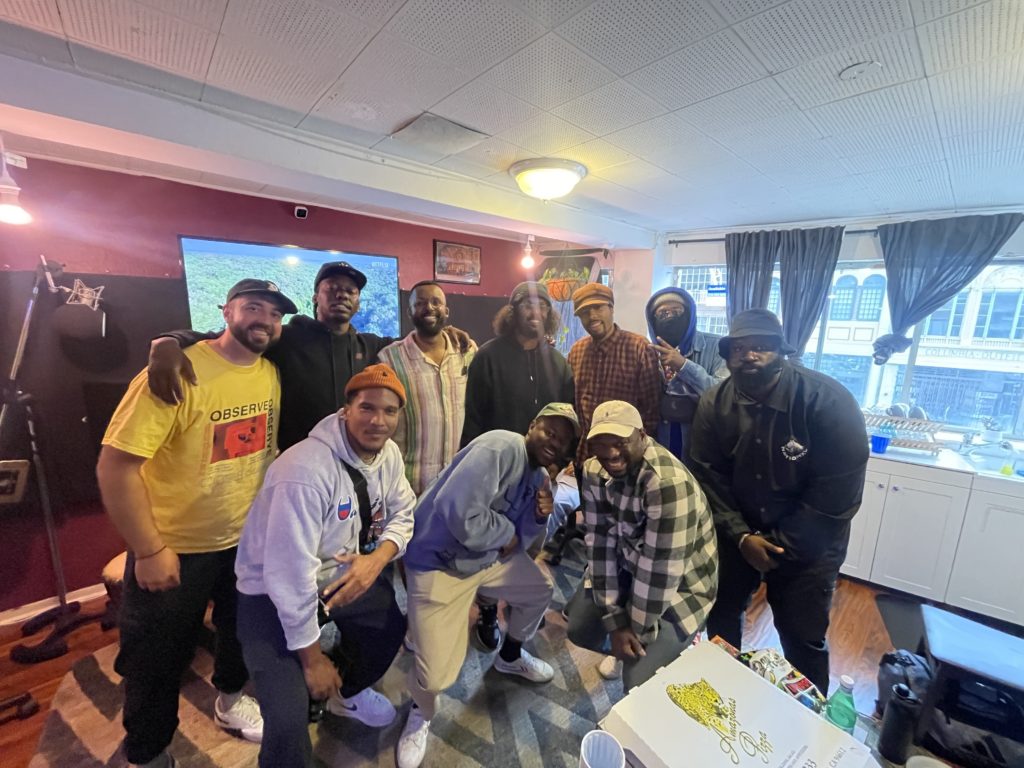By Emma Grover
I had the privilege of joining Khamsa’s very first listening party at the Reef Studios. I arrived at the given address and was greeted by a single-paned, glass door propped open, revealing the start of a long and narrow staircase. The music studio was tucked away at the top, bursting with life. A crowd of musicians exchanged hugs and laughter while a small white dog ran between their ankles. The air smelled of pizza, and behind a table of studio equipment, a large plasma television silently played Planet Earth videos. The atmosphere was electrifying yet tender, the excitement palpable as everyone settled into their seats.

Khamsa is a multimedia exhibition featuring 20 Black, Muslim, refugee, and/or immigrant artists and musicians, all of whom use their art to explore the five stages of grief: denial, anger, bargaining, depression, and acceptance. “Khamsa”, translating to the number “five” in Arabic, is evoked in the project’s banner as a hand with the Arabic number at the center of its palm. Abbas Mohamed, Khamsa’s Art Director and the Executive Director of GAMA (Gathering All Muslim Artists), explained during an Instagram live session with featured artist Fahd Butt, that we are at the center of the hand or the cycle of grief, “Loss is part of the human experience. We will all go through these stages at some point.” He later elaborates, “Grief is like the potter’s hands, and we’re just in the center, spiraling. We are shaped by our experiences.”
The listening session opened with Guled Muse, Khamsa’s Lead Artist, sharing what the project means to him, “We are here to celebrate each other not when we’re gone, but while we are still here.” No truer words could have encapsulated the next few hours as we listened to the five different tracks marking each stage of grief. Hovering in the background, Planet Earth played scenes of life and death, imbuing each lyric with a sense of gravity and awe. From the heart-wrenchingly honest voice of “Denial”, the incredible images unlocked in “Anger”, the fantasy world of “Bargaining”, the beautiful and devastating lyricism of “Depression”, and the euphoric melodic release of “Acceptance”, each track holds within it its own complex world. By the end, it was impossible not to feel the love and appreciation that filled the room.

After the listening session, I had the opportunity to speak to many of the participating musicians about their processes. I asked everyone the same, single question: What did this creative process mean to you?
As expected, I received a variety of answers. Mani Draper, who worked on the “Anger” track, shared with me, “I wanted to explore what the suppression of emotions as a black man looks like. How can it tarnish your relationships?”
Nu Nasa, who worked on the “Depression” track, answered, “To be with all these brothers and know that I’m not alone.”
Gavin Grant, from the “Acceptance” track, explained, “You never know who you’re working for, you know? When you process life and turn it into art, that’s what hip hop is.”
Recalling this now, I can’t help but think of Fahd Butt’s process of visualizing the five stages in his artwork. Just as each musical track was extremely varied in tone and style, Fahd gives each stage of grief a color to be remembered by. He shared, “Where my mind went is thinking of them [the five stages of grief] as colors. Each color is a particular wavelength of light, a particular state, and you can blend colors. You can think of grief in those ways as well. ” He then listed his colors out: denial as magenta, anger as red, bargaining as green, depression as grey, and acceptance as “marked by light”. His process of imbuing his artwork with emotion reminds me of what musician Gavin Grant told me at the listening party, “Stages of grief are stages of creation too.”
For me, Grant’s words capture the very essence of this project. By tackling one of the darkest human experiences, the artists of Khamsa have created a stunning space of music, color, voice, artistry, and ultimately, healing. Just as Abbas Mohamed shared, Vision from the television show, Wanda Vision, couldn’t have described it better, “Grief is this love that has nowhere to go.”
Khamsa will be shown at Aggregate Space Gallery in Oakland from September 2 through October 15, 2022. Tickets are available now for the Opening Reception on September 2, 2022 from 6 – 9 PM featuring artist talks with Lead Artist Guled Muse, and visual artists Zara, Fahd Butt, and Meriam Salem. RSVP for the show and learn about other upcoming events at https://www.artogether.org/khamsa/.


